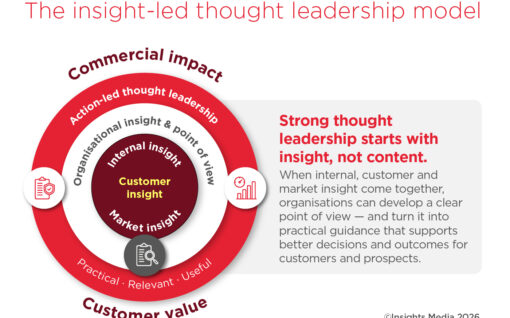What’s the future of hybrid working?
Despite hybrid working continuing to be a confusing, tricky landscape for employers and employees to navigate, some organisations are starting to put their stakes in the ground on this issue.
In summary:
- Companies are reconsidering remote work policies, with 90% expected to reinstate office attendance by 2024, risking termination for non-compliance.
- Employers are offering incentives like subsidised meals and travel to encourage office returns, though employee preferences for perks may differ.
- Remote versus in-office work remains a complex issue, with business needs, cost considerations, and employee well-being all influencing evolving workplace dynamics.
Hybrid working has been a huge success. It’s a win-win for employers and employees, so yes, employers are saying people can keep working from home if they want to. Actually, scrap that. Only some of the research says that. Other pieces of research say companies want employees back in the office, with even the most enlightened employers saying (fully) remote working is off the table. Zoom, for example, has backtracked from saying that employees can work remotely indefinitely to saying that employees who live within 50 miles of an office have to work in that office at least twice a week (https://www.bbc.co.uk/news/business-66432173).
 It’s hard to know what’s going on with the remote v hybrid v in-person working debate at the moment as there have been so many shifts in approaches, attitudes and research findings since the pandemic first upended everything in 2020. But, it does look like the tide has turned a bit, particularly with regards to the fully remote option. Recent research by Resume Builder found that the vast majority of companies (90%) plan to introduce return-to-office policies by the end of 2024. A good chunk (28%) of the 1,000 company leaders polled also said employees who don’t comply could lose their jobs.
It’s hard to know what’s going on with the remote v hybrid v in-person working debate at the moment as there have been so many shifts in approaches, attitudes and research findings since the pandemic first upended everything in 2020. But, it does look like the tide has turned a bit, particularly with regards to the fully remote option. Recent research by Resume Builder found that the vast majority of companies (90%) plan to introduce return-to-office policies by the end of 2024. A good chunk (28%) of the 1,000 company leaders polled also said employees who don’t comply could lose their jobs.
So, some organisations are really putting their stakes in the ground on this issue. The problem is that it’s currently quite a confusing, tricky landscape for employers and employees to navigate.
Back to the office
Why are so many organisations now favouring employees being in the office more? Is it because they are paying for their real estate and want to have bums on seats to justify the expenditure? Is it because the labour market/economic situation has shifted and the balance of power has shifted back to employers, making them feel they can call the shots again? They want employees in the office, where they can keep an eye on them.
Of course, employers may prefer a hybrid model (over remote working) because they think it’s best for business – better for collaboration and communication, for innovation, for keeping culture alive, for creating a sense of belonging, etc. Gallup research identified something that could be a big problem for employers (and employees): that exclusively remote workers were feeling less connected to their organisation’s purpose and mission, with number slumping to a record low. This is definitely not what employers want.
The reality is that for many, hybrid/remote working is work in progress. It is still unfolding, what works and what doesn’t. No two organisations are the same, no two teams are the same, no two employees are the same. What works in one situation won’t necessarily work in another. Employers have so many factors to consider, not least the needs of different generations and entry level employees versus more experienced employees.
Knee-jerk reactions
Perhaps one of the things that has emerged most clearly in recent months is that knee-jerk reactions are not the answer. There is no point ordering everyone back into the office (some or all of the time) without establishing and explaining why. And having been given a taste of WFH freedom, people are not going to like a mandated return to the office (dating app Grindr reportedly lost almost half its workforce after taking this approach).
Research by recruitment company Hays, shared exclusively with B2B publisher Raconteur, found that some companies are taking a more softly softly approach with getting people back into the office. Instead of the stick, they are offering perks, with the top ones being bike storage and showers (49%), onsite café or free drinks (48%), social events (48%), better workplace tech (43%), subsidised or free lunch (32%), gym membership (30%) and subsidised travel (18%).
Do employees rate these incentives? Some yes, definitely. Others, less so. The most popular perk is subsidised travel (46%), subsidised or free lunch (45%), onsite café or free drinks (40%), gym membership (33%), better workplace technology (29%), social events (27%) and bike storage and showers (13%).
It looks like there is a mismatch between what employers are offering and what employees really want. It may be that employers need to catch up with the current zeitgeist – the cost-of-living crisis is really biting for a lot of people, which probably explains why perks such as subsidised travel and subsidised (or even better, free) lunch are so popular.
Standout stats from some of the hybrid/remote working/office working reports:
Deloitte 2023 Connected Consumer Survey (US focus)
- 56% of adults employees worked in a fully remote or hybrid way at their primary job, with 45% saying WFH improved family relationships and 40% saying it improved their emotional wellbeing.
- employees want to keep WFH flexibility – either fully remote or hybrid options. Preferences for ‘completely or mostly in-person’ work was at 37%, a fall from 44% the previous year, while preferences for an even blend of remote and in-person rose from 21% to 28% over the same time period.
How hybrid work has changed the way people work, live, and shop, McKinsey
- office attendance is 30% lower than pre-pandemic levels
- the average global worker goes to the office 3.5 days a week (3.1 days a week in London)
- 37% work in the office every day, 56% have hybrid work arrangements and 7% are fully remote
Flexible working and the future of work
Managers are more positive about flexible working than they were before the pandemic. They think employees WFH improves employee:
- productivity (60%)
- motivation (63%)
- concentration (52%)
71% of line managers also see flexible working as a performance-enhancing tool, with 66% of senior managers saying the same.
But, 56% of managers think WFH leads to isolation.
[Picture credit: Helena Lopes]

